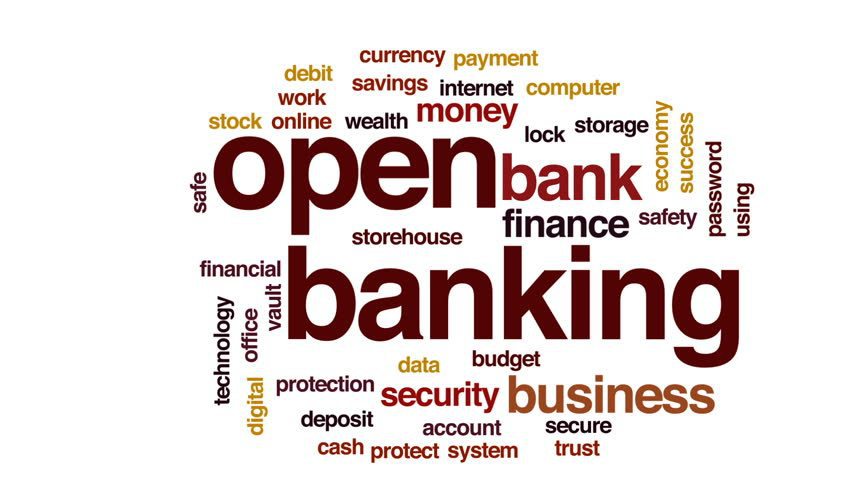
Insights & Opinions
Open Banking: An open door to a new way of banking (part 2)
Fri, 04 Oct 2019

ou may have read my series of guest blogs for Isabel 6. The last one can be found was called “Open Banking: An open door to a new way of banking”. The blog dug deeper into the indirect consequences of PSD2 on banking services for professional customers.
The most tangible today, the one that probably every bank is investigating, is the better lending services that can be provided thanks to account aggregation.
The biggest impact, though, will be in the new way services providers think of financial services in the near future and how they will provide it to the end-customer. Today this is for many still a black box how this will materialise.

That makes Open Banking so interesting: no one really knows the future, everyone has an idea and at the end… the future will be determined by the customer. He decides how to do banking in the near future.
Well… near future… already today you can find many examples of how new companies and new services are providing superior financial services.
These companies developed a platform that is ready for the future of APIs and microservices, a future of the long-discussed ‘plug&play’ in an Open Banking world.
I listed a few examples in the above-mentioned guest blog. Starling Bank was one of them, with their collaboration with Growth Street, another one was Penta and their integration with lexoffice and Debitoor. The last example was Isabel Group and their partnership with Ibanfirst to offer FX trading services in their multi-banking platform.
But there are more, too many to add in the initial blog for Isabel.
You can read this as an extension to that blog post.
Open Banking: An open door to a new way of banking (part 2)
So what else is there? My top-of-mind additional examples are:
Mettle
Mettle is a new brand in the UK, a co-creation of Natwest, 11:FS and Capco. Their sole purpose is to provide innovative, value-added services for independents and small businesses. Perceived a bank by the outside world, they are currently licensed as a money institution, meaning they can provide all kind of daily banking services, but for extra services, they need to fall back on partnerships at the moment.
In the original blog, I already wrote that Penta integrated its services with accounting software packages lexoffice and Debitoor. Well… Mettle goes a step further: they also allow to make the invoice on their own platform, to the example of PayPal. The moment the invoice is paid, it will automatically be reconciled.
Receipts can simply be linked to your transactions and graphs on the ins and out of your account facilitate the overall trend your cash position goes. Most of your daily accounting activities can be done in the bank environment.
The lean organisation and modular architecture allow Mettle to quickly add new services as well in the future. Thanks to the implementation of PSD2 we can imagine a whole range of new services in the near future.
ABN AMRO Bank
The Open Banking Interview with their API Product Owner, Koen Adolds, already showed that they are ahead of most banks in terms of Open Banking and APIs. A good example, one that was not talked about in the Interviews, is one of their recent add-ons on their API Platform: an API for FX trades. This will facilitate requesting rates and quotes for the most traded currencies in real-time.
Another fun gimmick for corporates that they are currently testing on their platform is the possibility to add the company logo on the account information of their customers in the ABN AMRO Banking environment.
This should increase transparency and reduce the number of confused customers that may not have sufficient information with only an account number and a transaction code. So by adding a logo on the account information, a corporate should be able to reduce the number of complaints by their clients.
A third API worth mentioning for the SME market is the API for the Tikkie Payment Request. For better user experience, the payment requests can be sent through SMS, Whatsapp, Facebook Messenger or any other channel. The payment can be completed with iDEAL by the beneficiary.
solarisBank and BankiFi
Thanks to organisations like solarisBank and BankiFi we’ll see a lot more of this kind of examples rise up in the near future. BankiFi for example is completely constructed around providing a set of microservices that their customers can use to build on the Open Banking rails for upgrading their offering to business customers.
BankiFi does not provide business banking services themselves, they only facilitate it. Their offering goes from invoicing solutions, payments, accounting, virtual accounts, cash management to also notification services and lending.
In short, they work with banks and other financial services providers.
solarisBank on the other hand works with organisations to build banks, it is a “tech company with a banking license”. Do you have a great idea to make financial services for business (or retails) customers better? They can help you set up the infrastructure so you can spend all your energy on the go-to-market. Penta is one of the examples that is built on the Solaris platform.
Conclusion
What you can read through the lines here is that Open Banking is about open technology and about open dialogue. This is what makes Open Banking so special and where the magic comes from.
PSD2 forced the industry towards this new mindset. Or course technological evolutions did the same thing, but with the Directive sure accelerated the pace at which financial institutions opened up for this kind of chance!
Do you have other examples worth mentioning? Please get in touch!


